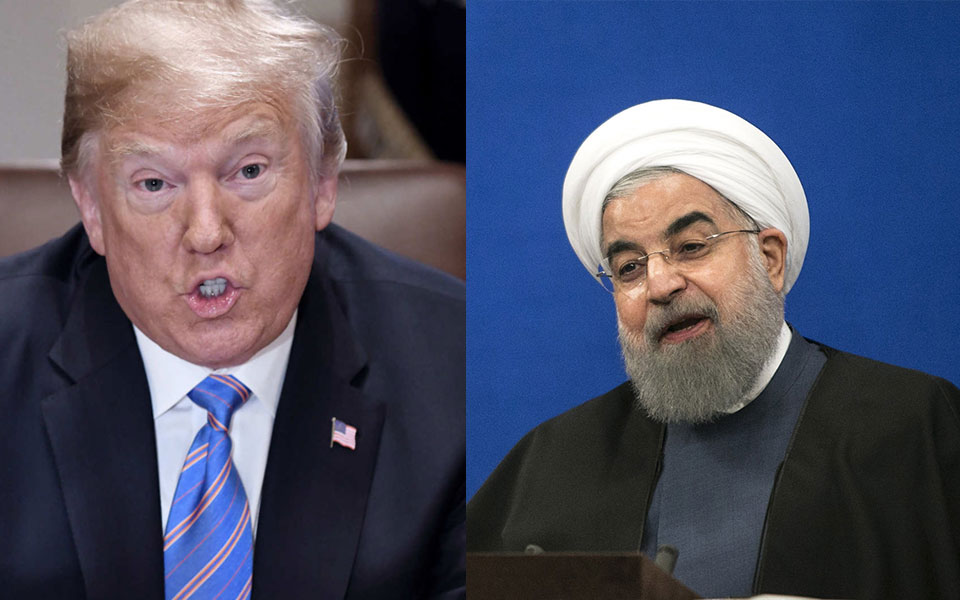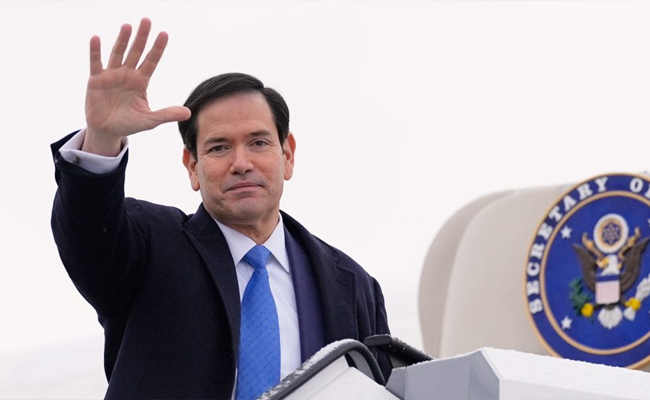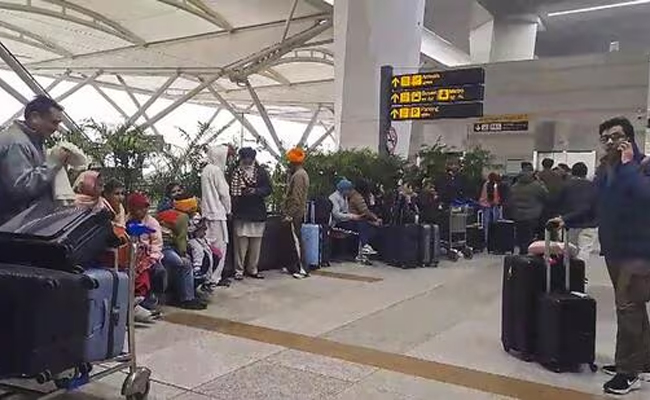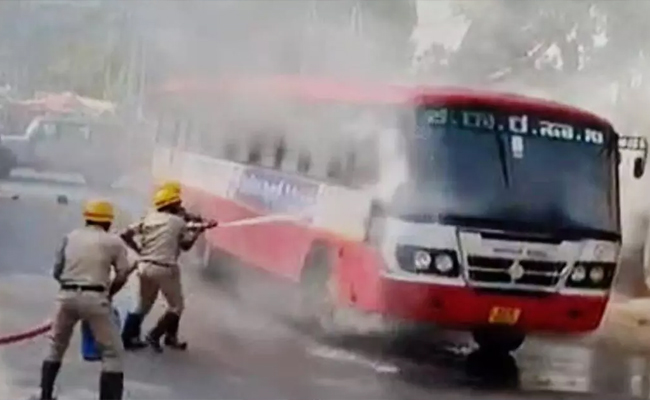Washington, July 23 : The US President Donald Trump warned his Iranian counterpart Hassan Rouhani against threatening the US, adding that there could be severe consequences.
At a ceremony attended by Iranian diplomats, Rouhani had asserted that his country was not seeking to start hostilities with the US, but it would not shy away from a fight, Efe news reported.
"To Iranian President Rouhani: NEVER, EVER THREATEN THE UNITED STATES AGAIN OR YOU WILL SUFFER CONSEQUENCES THE LIKES OF WHICH FEW THROUGHOUT HISTORY HAVE EVER SUFFERED BEFORE," Trump tweeted to Rouhani late on Sunday.
"WE ARE NO LONGER A COUNTRY THAT WILL STAND FOR YOUR DEMENTED WORDS OF VIOLENCE and DEATH. BE CAUTIOUS!" he added.
Rouhani had said that dealing with the US does not mean surrendering and putting an end to Iran's achievements, and called Trump a liar.
"(Iran's) enemies must understand well that war with Iran is the mother of all wars, and peace with Iran is the mother of all peace," he was quoted as saying by the Iranian Presidency's website.
In May, Trump pulled the US out of the 2015 multilateral nuclear agreement with Iran and re-imposed sanctions on Tehran, which will come into force in August.
Trump has criticized the earlier pact and demanded a more aggressive one which restricts the Iranian ballistic missile program.
The 2015 nuclear agreement, signed by Iran and the P5+1 Group comprising the US, Russia, China, the UK, France and Germany, limits Tehran's nuclear energy program in exchange for the lifting of international sanctions, but its future is unsure after Washington's measures.
Let the Truth be known. If you read VB and like VB, please be a VB Supporter and Help us deliver the Truth to one and all.
Mumbai (PTI): Actor Esha Gupta on Tuesday said she has safely returned to India after being stranded in the United Arab Emirates amid escalating tension due to the Israel-US attack on Iran.
“Back home. Thank you all for your prayers and wishes. It was very tough to be in the situation we all faced. Truly God’s blessing to be safe,” Gupta said in a statement posted on Instagram.
Tensions in the middle east have escalated following a coordinated offensive launched by the United States and Israel against Iran on February 28. Iran responded by firing drones and missiles at Israel and US military installations across the Gulf, and also at the global business hub of Dubai.
The actor, best known for “Jannat 2”, “Rustom” and “Total Dhamaal”, also recounted the tense atmosphere at the Abu Dhabi airport.
“It started when I was at the airport on the 28th (Saturday). By 1 p.m., the airport was closed, chaos all around as none of us knew what had happened. Then the news started coming of the missile attack, and no one knew what the next minute held for us. Strangers consoled each other, all calling their families back home,” Gupta said.
The actor lauded the “strength” and the “composure” of the Abu Dhabi International Airport staff and added that ground security and airport personnel acted immediately to maintain order.
“I hadn’t checked in myself by then, so I took a turn and left for my hotel in Abu Dhabi,” she said, adding that passengers were provided accommodations at available hotels and highlighting the dedication of hotel staff during such a tense situation.
She further said the hotel management answered all their questions patiently to the best of their ability and that there was no shortage of any service.
“The lobby was full of people, including us, scared due to the security alert, but there was no chaos. The hotel security kept reassuring everyone. Not once did we see the people, all scared internally, create stress; we were all in this together,” Gupta said and even thanked the airline staff for their assistance.
“All this shows just the backbone of a country and its strength; they took action when needed, no blaming anyone, just strong decisions. Thank you to everyone who helped and is helping people of the world get back home. Your country is truly special,” she said.
Gupta concluded her post by thanking everyone who helped ensure her safe return.
“Thank you for our government for providing its citizens with reassurance and working towards getting us all back. Thank you to UAE government in working in solidarity with every country for the citizens of the world,” she said.
Actor Sonal Chauhan also updated her fans and admirers that she is heading back home after being stranded in Dubai.
The actor shared the update through her Instagram Stories with a few videos showing her travelling in a car on her way to the airport, with the song ‘Coming Home’ by Skylar Grey playing in the backdrop.





